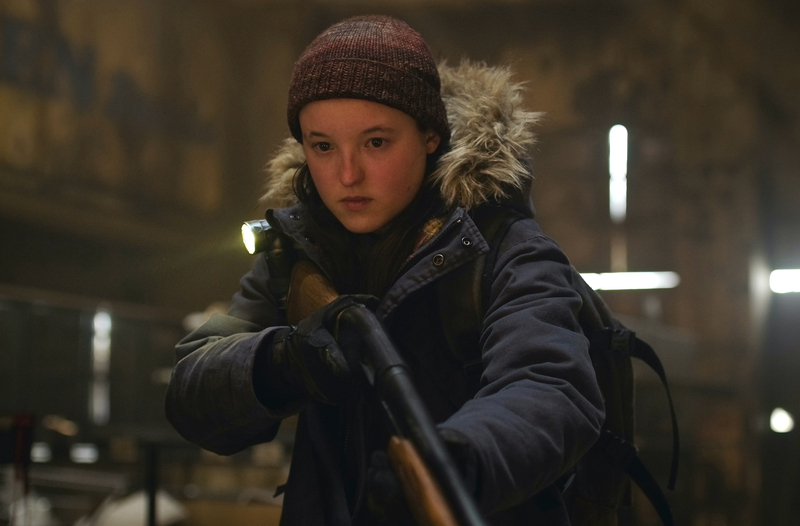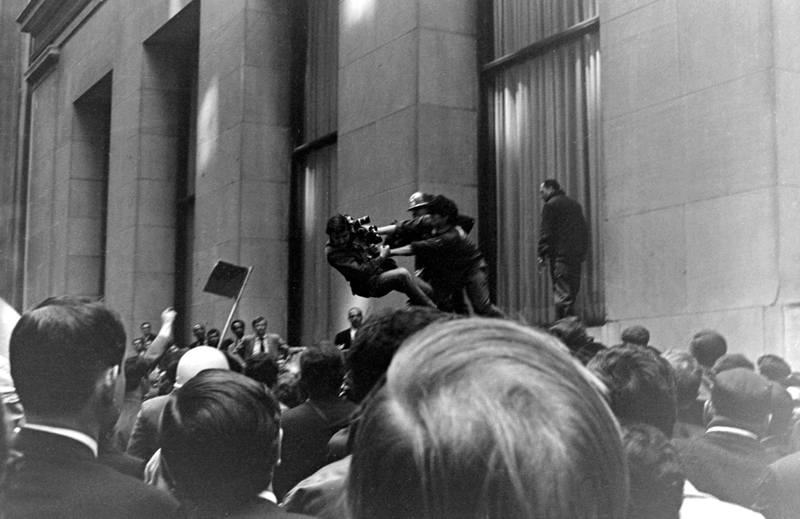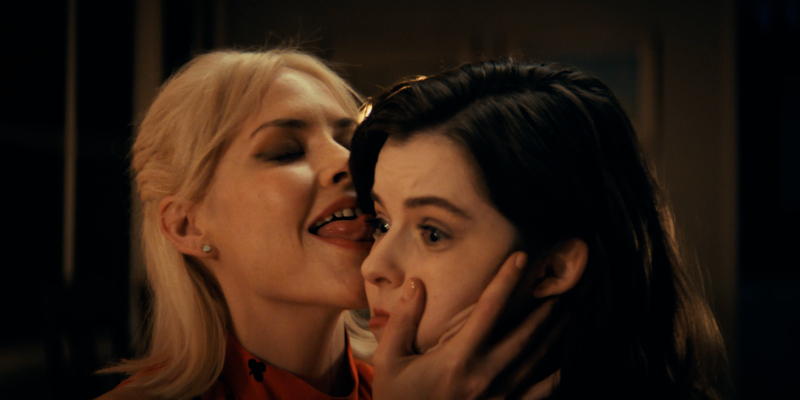
Love, Loyalty, and the Price of a Lie
TV SERIES REVIEW
The Last of Us: The Complete Second Season
–
Genre: Drama, Horror, Post-apocalyptic
Year Released: 2025
Runtime: 7h
Director(s): Various
Writer(s): Craig Mazin, Neil Druckmann
Cast: Bella Ramsey, Pedro Pascal, Kaitlyn Dever, Isabela Merced, Young Mazino, Gabriel Luna, Rutina Wesley, Jeffrey Wright, Tati Gabrielle, Ariela Barer, Spencer Lord, Danny Ramirez, Catherine O’Hara
Where to Watch: available on 4K Ultra HD Steelbook, 4K Ultra HD, Blu-ray, and DVD now
RAVING REVIEW: THE LAST OF US: SEASON 2 tightens its focus. Five years after the first season’s finale, the show returns with a run of seven episodes and a story that refuses to flinch. If the initial outing centered on the hope between two survivors, this chapter is about what it costs to protect a lie—and what revenge demands when that lie collapses. The season makes hard, sometimes polarizing choices, but it also finds a dark, somber clarity about grief, loyalty, and the way violence echoes long after the trigger’s pulled.
Bella Ramsey’s work anchors the season. Ellie is older, angrier, but still recognizably the kid we met—quicker to challenge, slower to forgive, and carrying a weight she can barely name. Ramsey threads that contradiction with precision; a glance often does more than the dialogue, and the show trusts those quiet moments. Pedro Pascal’s presence is more sparing this time, but still vital. When Joel is on screen, the air changes—warmth and dread sharing the room. Together, they make silence as loaded as the season’s bloodiest set pieces.
The new ensemble with Kaitlyn Dever’s Abby arriving with purpose and a storm at her back, the show resists flattening her into a single note. Isabela Merced’s Dina gives the season its beating heart: kindness that isn’t naïve, affection that isn’t simple, and a way of looking at Ellie that suggests a future even when the present keeps circling back to the past. Young Mazino’s Jesse brings steadiness and grounded decency—a reminder that bravery can look like showing up, not just striking out.
Ramsey charts a path from humor to near-feral resolve without losing the kid who still wants to believe people can be better. Dever carries the impossible task of asking the audience to sit with someone defined by a single act and then notice everything else about her. Merced turns a handful of scenes into anchors; you remember the warmth of a kitchen, the hush of a lookout point, the way a promise sounds when you say it like you mean it. Jeffrey Wright’s presence deepens the moral geometry, and Catherine O’Hara’s guest turn adds a human wrinkle that’s both surprising and apt.
Visually, the season keeps the franchise’s realism: winter light that feels thin as paper, the creak of a door you don’t want to open, the edge of a road where the horizon isn’t a promise. Production design remains a quiet storyteller—Jackson’s lived-in details, the brutal pragmatism of outposts, the evidence that people keep trying to make a home even when the world keeps saying no. The music choices continue to add bruised tenderness, often letting a chord linger like a question you can’t answer yet.
The season’s theme is consequence, and it refuses to soften its stance. Love can be selfish and still be love. Revenge can feel righteous and still poison the well. Forgiveness isn’t a twist; it’s a direction characters head toward—or don’t—one inch at a time. The finale doesn’t wrap everything up. It clarifies what remains to be faced. Some will call that incomplete; others will recognize the design. Either way, the show earns its ambiguity by taking its people seriously.
The season hits hard. It’s confident about what it wants to say: that love and violence are ghastly mirrors, and that the cost of protecting the people you call yours doesn’t vanish just because you can live with it. The show’s best scenes aren’t the loudest ones. They’re the quiet reckonings: hands that don’t quite touch, the pause before telling the truth. Those are the moments that will play back in your head after the credits, long after the blood dries and the arguments fade.
Taken as a whole, THE LAST OF US: SEASON 2 is a bruising, thoughtful continuation. It risks alienating people to be honest about its characters, and in doing so, it finds a difficult kind of beauty. Not everyone will love where it goes, but the season respects its audience enough to ask harder questions and accept messier answers. That’s rare. And it’s why this world still feels worth returning to, even when it hurts.
#TheLastOfUS, #TLOU
Please visit https://linktr.ee/overlyhonestr for more reviews.
You can follow me on Letterboxd, Instagram, Twitter, and YouTube. My social media accounts can also be found on most platforms by searching for 'Overly Honest Reviews'.
I’m always happy to hear from my readers; please don't hesitate to say hello or send me any questions about movies.
[photo courtesy of WARNER BROS. DISCOVERY HOME ENTERTAINMENT, HBO]
DISCLAIMER:
At Overly Honest Movie Reviews, we value honesty and transparency. Occasionally, we receive complimentary items for review, including DVDs, Blu-rays, CDs, Vinyl Records, Books, and more. We assure you that these arrangements do not influence our reviews, as we are committed to providing unbiased and sincere evaluations. We aim to help you make informed entertainment choices regardless of our relationship with distributors or producers.
Amazon Affiliate Links:
Additionally, this site contains Amazon affiliate links. If you purchase through these links, we may receive a commission. This affiliate arrangement does not affect our commitment to honest reviews and helps support our site. We appreciate your trust and support in navigating these links.



Average Rating